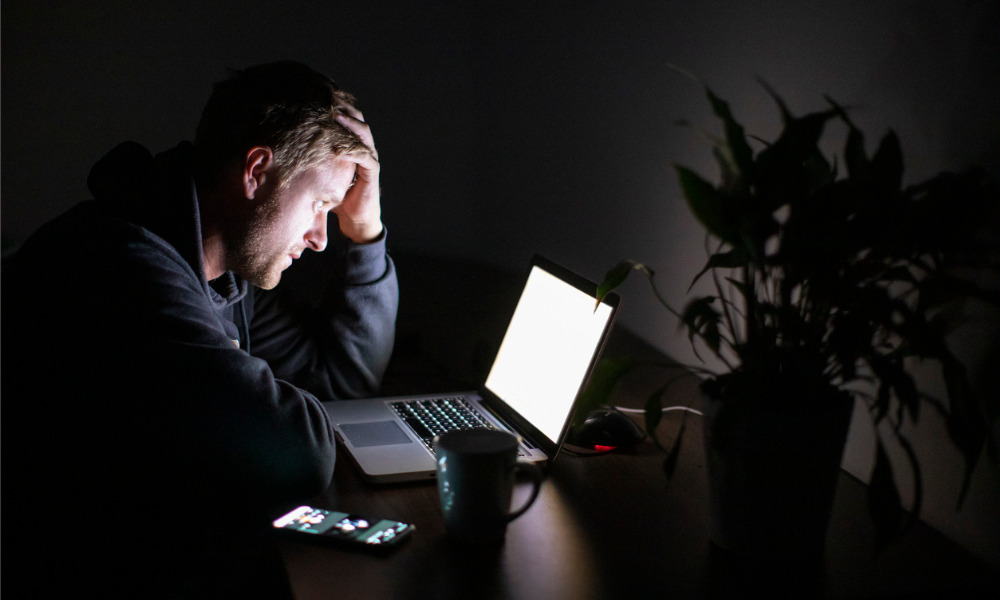
As working remotely continues to be the new world order, employees may feel pressure to use this time to improve themselves or learn a new skill

As working remotely continues to be the new world order, employees may feel pressure to use this time to improve themselves or learn a new skill.
Publications are full of articles containing tips and tricks on how to lose weight, enhance meditation, or eat clean, among others. And while this is all very helpful to people who are already in that mindset, for those struggling with their mental well-being, this added pressure to better themselves could be unwelcome and even harmful.
HRD Canada spoke to Dr. Jarik Conrad, Sr. Director of Human Insights and HCM Evangelism at Ultimate Software and a speaker at Ultimate’s upcoming webcast on mental health. He explained how employers need to prepare for a potential fallout at the end of COVID-19 – and how HR can support employees through these stressful times.
“We need to start rethinking health and wellness,” prefaced Dr. Conrad. “Yes, of course, some people are going to use this period when working remotely or staying home to focus on their physical and mental health. They might use the extra time to devise a new workout plan, eat healthier, or be more mindful.”
However, as Dr. Conrad pointed out, there will be some people who don’t emerge from this period as healthier, more well-adjusted versions of themselves.
“People who are struggling and having mental-health challenges associated with this major change in working patterns are likely to come out of this in worse condition,” he added. “Realistically, if they were a little bit depressed, or a little bit unwell, they’re not likely to go and do some push-ups. They’re likely to self-medicate or adopt other coping techniques. As such, it’s important that HR recognizes that an authentic and realistic focus on overall well-being is essential to all employees.”
So, what does the future hold for our post-COVID-19 workplaces? Well, according to Dr. Conrad, we need to consider what the “new normal” will look like.
“Once we start getting back to the office, I think we’re going to be in a transitional phase for a while,” continued Dr. Conrad. “We’re in a crisis right now. From here, we’re going to be in a period of uncertainty. People will be questioning everything. Is this really all over? Will the illness return? Should I go to work even though they said I could go to work?
“There’s going to be a time of some anxiety where people will dip their toes in the water and test out their new reality. I think that, if HR professionals are focused on the mental and physical well-being of employees during this current lockdown phase, it will help to transition into a new normal routine much faster.”
To hear more from Dr. Conrad on how to practice empathy during COVID-19, sign up for Ultimate’s upcoming webcast here.